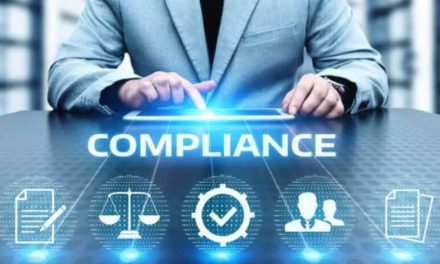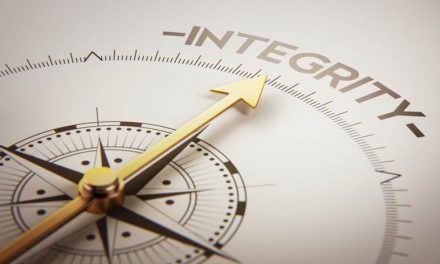Introduction
Corruption is indeed no longer a national problem but rather a global disease and States are uniting in the fight against this curable disease. The level of unit and strong tone against corruption which is being seen by international leaders today has brought a game changer in the way corruption will be dealt with in near future. In the next 25 years they will be a lot of positive trends in the fight against corruption. This paper will look at the global trends and possible development in the fight against corruption in the next 25 years.
Joint Action and International Cooperation
Just like the fight against terrorism has become a joint action of States corruption is also one of the crimes which can be ably fought if there is a joint action by all States. Although the joint action has already started with a few countries forming regional bodies, in the near future these organization will be stronger and more organized like INTERPOL and other international crime fighting agencies.
The beauty about joint action is that there is inter connection driving force which enables the crime fighters to trace the proceeds of the crime anywhere in the world and retrieve it, in addition to this, joint action makes it impossible for the perpetrator of corruption to seek refugee anywhere in order to avoid to face the law in one country. The world is becoming more aware that it has a responsibility to jointly fight against corruption.
There is a growing appetite to pursue large anti-corruption and bribery prosecutions in the world these days. This has increased because it is possible to do multi-jurisdictional investigations and greater cooperation between and among regulators across multiple jurisdictions (Wombolt and Fletcher, 2015).
The world is talking of globalization as the way to go, therefore International cooperation in this fight against corruption will be more than ever in the coming 25 years. A lot of International Institution are now more than willing to offer technical assistance to national lever organization who are fighting corruption. This technical assistance with good effective way of implementing anti-corruption compliance program will be more intense in the coming years.
Collective Action
Collective action is also one of the ways in which the fight against corruption will go in the next 25 years. This is one of the best method as it triggers ethical change. For instance in doing business corruption is one of the main obstacles and take away a lot of revenues from business people. When taking up collective action one is not only desisting from corrupt activities but also must report the incident which will then deter others from doing the same when proper action is taken against the perpetrators(International Center for Collective Action, Working Paper Series 27, 2018). Some of the success stories is that of Maritime Anti-Corruption Network (MACN Impact Report, 2018).
Education curriculum
One thing I have noted is that despite different nations having different curriculums in their education system there is no emphasis of integrity as one of the important life skills which should be passed on to the next generation in their curriculum. Education systems of today would rather put emphasis on Mathematics and Sciences. In the next 25 years there will be a lot of change in the curriculum from primary to tertiary by making it mandatory that some integrity courses should be taken by students. The evils of corruption needs to be brought to the attention of every child as they are future citizen and leaders of the world.
The establishment of an Institution such as the International Anti-Corruption Academy (AICA) is one of the signs that the world is taking corruption seriously and understands the importance of having the dangers and the fight against it being taught in a formal education institution. In the next 25 year they will be more institution like AICA. This fight will not only end in classrooms but rather there will be a lot of international awareness and sharing of negative experiences of corruption by education institutions.
Preventive measure
There are a lot of standard preventive measures of corruption, however in the coming years we will see a lot of more systematic preventive measures. For instance the new Accounting standards have measures which in away prevent bribe payments as they cannot be justified in the ledger.
The issue of Penalties which the FCPA and the UK Bribery Acts have implemented to those business which have some connection to the USA and UK respectively will in the near future be developed and adopted into many national laws therefore deterring a lot of corrupt minded people from doing it within the specific country for fear of penalties.
Issue of companies to have code of conduct or an anti-corruption policy is becoming an international standard best way of doing business, however in the near future even small and medium business will adopt these standards hence each business despite how small it is will have its code of conduct and an anti-corruption policy.
Further to the above with the new phenomena of “collective action” in the next 25 years they will be a lot of cooperation between the business sector and law enforcement agency making it very difficult for corrupt actors.
Corporate Criminal liability and Contract law
Many countries are changing their criminal laws by making corporate companies criminal liable for corrupt actions of their employees. Countries like Malawi still do not have corporate criminal liability but this issue is already been discussed in the legal cycles (Penal Code: Chapter 7:01). In the next 25 years more countries will have corporate criminal liability therefore making companies more careful by adopting anti-corruption measures and implementing them to mitigate their cases in case they are caught on the wrong side of the law.
In addition to the above, in contract law most main terms of a commercial contract are mainly standard. However, as a matter of a principle of contract law in the next 25 years it will be a material term of any contract that any act of corruption on one party to that particular contract will nullify or rescind the contract.
Technology for Integrity
One thing which is changing our daily life is technology. Technology is biggest game-changer for addressing corruption. In the next 25 years technologies like big data analytics, block chain, mobile applications and e-governance systems will be tools used in the prevention, detection, investigation and prosecution of corruption, although it must be accepted that they also have inherent risks(World Economic Forum Report, 2018). The risk comes about because they can be manipulated and used for the same corruption and other crimes. For instance, whilst distributed ledger technology like block chain can be used to fight corruption, cryptocurrency transactions rely on the same technology to facilitate illicit deals and money laundering (Noveck, 2018).
Easing of Laws
It must be accepted that due to different cultures it is difficult to have one size fit all laws in the fight against corruption. Each case must be dealt with on case to case basis and also we need to look at the area where the crime was committed with all its culture, economic, social and political background. It is from the above background why countries such as Russia are suggesting easing the laws on corruption.
“Russia’s Ministry of Justice is proposing a change to make some corrupt acts exempt from punishment, if the corruption is found to be unavoidable. The proposed rule says officials and public figures could be exempt if “objective circumstances” made it impossible for them to comply with corruption laws” (Chappell, 2019, p1).
The above proposal coming from a powerful State like Russia will see many other countries following suit. Therefore in the next 25 years although they will be good trends in the fight against corruption I can see that they will be some adjustments and acceptance of some sort of corruption if it is dimmed to be beyond the control of the perpetrator.
Conclusion
Based on the predictable world trends they will be a lot of changes in the fight against corruption in the next 25 years as discussed above. However, these changes will be done whist the political leaders are more careful in not affecting international trade and businesses because being strict in the fight against corruption can also affect the economy of some states. Hence they will be some justified tolerance.
Reference
Basal Institute on Governance, Anti-Corruption Collective Action: Success factors, sustainability and strategies Insights and recommendations from two workshops, International Center for Collective Action, Working Paper Series 27, 2018.
Beth S Noveck, Innovations in the Fight against Corruption in Latin America, available on https://www.forbes.com, accessed on the 19th March 2018.
Bill Chappell, Russia Proposes Easing Laws on Corruption, Saying It’s Unavoidable Sometimes, available on https://www.npr.org accessed on the 17th of March 2019.
Kyle Wombolt and Fletcher R, Global trends and Global Outlook, available on www.herbertsmithfreehills.com accessed on the 20th March 2019.
Maritime Anti-Corruption Network (MACN Impact Report, 2018).
Partnering against Corruption Initiative, World Economic Forum, available on www.weforum.org accessed on the 21st March 2019. The Penal Code of Malawi, Chapter 7:01.

Francis Nyarai Ndende




